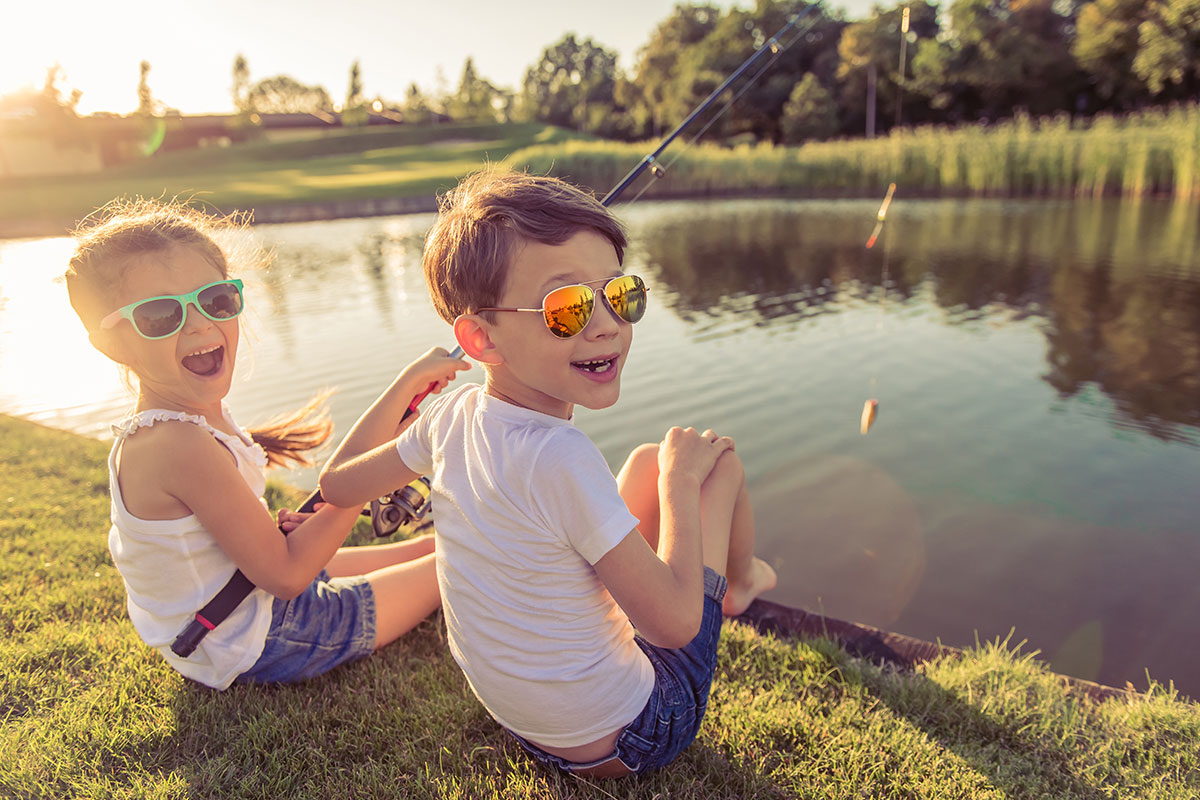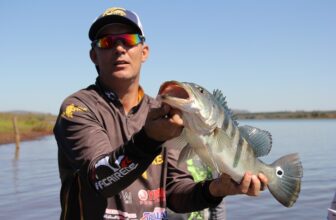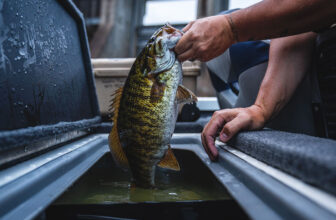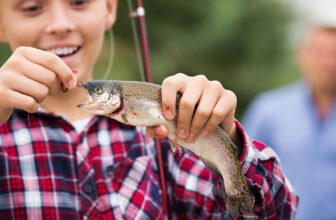
As a lifelong angler and avid outdoorsman, I have always believed in the power of fishing to inspire and educate young people. That’s why I decided to host my own summer fishing camp for kids, and I’m excited to share my experiences and insights with others who are interested in doing the same. In this article, I’ll walk you through the process of planning and how to host a fishing camp for kids, from choosing a location and equipment to recruiting campers and staff, implementing safety protocols, budgeting and fundraising, marketing and promoting your camp, and much more.
Location and Equipment Considerations
The first step in planning a summer fishing camp for kids is to choose a suitable location and ensure that you have all the necessary equipment. Ideally, you want a site that is safe, accessible, and has a good population of fish. Look for parks, lakes, rivers, or other bodies of water that are well-maintained and have amenities like restrooms, picnic areas, and boat launches. You may also want to consider partnering with a local fishing club or outfitter to get access to private ponds or other exclusive fishing spots.
Once you have a location in mind, start thinking about the equipment you’ll need to provide a positive and rewarding fishing experience for your campers. This may include fishing rods, reels, tackle, bait, life jackets, and boats or kayaks. You can purchase or rent these items from a variety of sources, depending on your budget and needs. Don’t forget to also invest in safety equipment like first aid kits, sunscreen, hats, and insect repellent.
Planning Activities and Curriculum
The next step in planning a successful summer fishing camp for kids is to create a schedule of activities and curriculum that will keep your campers engaged, learning, and having fun. This may include fishing lessons and demonstrations, environmental education activities, team-building exercises, games and competitions, and more. You can also incorporate other outdoor activities like hiking, swimming, or camping to provide a well-rounded experience for your campers.
When designing your curriculum, consider the age, skill level, and interests of your campers, as well as your own expertise and resources. You may want to recruit guest speakers or instructors who can teach specific skills or share their own fishing experiences. You can also use online resources and educational materials to supplement your own knowledge and provide additional learning opportunities for your campers.
Recruiting Campers and Staff
With your location, equipment, and activities in place, it’s time to start recruiting campers and staff for your fishing camp. There are many ways to do this, depending on your budget and outreach capabilities. You can advertise your camp through social media, flyers, local newspapers, and community organizations. You can also partner with schools, churches, or other youth organizations to reach a wider audience.
When recruiting campers, be sure to provide clear and concise information about your camp, including dates, times, costs, and expectations. You may also want to offer scholarships or financial assistance for families who may not be able to afford the full cost of the camp. When recruiting staff, look for experienced anglers, educators, and youth workers who share your passion for fishing and working with kids.
Safety Protocols and Emergency Procedures
As with any youth program, safety should be a top priority when planning and organizing a summer fishing camp. You’ll need to create and implement a set of safety protocols and emergency procedures to ensure that everyone involved in the camp is protected from harm. This may include guidelines for swimming, boating, and fishing, as well as procedures for dealing with medical emergencies, severe weather, or other unexpected situations.
Be sure to communicate your safety protocols and emergency procedures to all campers and staff, and provide training and practice sessions as needed. You may also want to partner with local emergency services or medical providers to ensure that you have access to the resources you need in the event of an emergency.
Budgeting and Fundraising
To host a fishing camp for kids can be a costly endeavor, so it’s important to create a realistic budget and develop a fundraising plan to cover your expenses. This may include costs for equipment, supplies, staff salaries, insurance, and other expenses. You can offset these costs by charging campers a fee to attend, seeking sponsorships from local businesses or organizations, or applying for grants or other funding sources.
When creating your budget, be sure to account for all expenses and consider any potential revenue streams. You may also want to create a contingency plan in case of unexpected costs or budget shortfalls.
Marketing and Promoting Your Fishing Camp
Once you have all the logistical details in place for your fishing camp, it’s time to start marketing and promoting your camp to potential campers and their families. There are many ways to do this, including social media, flyers, posters, email newsletters, and word-of-mouth referrals. You may also want to create a website or online registration portal to make it easier for families to sign up for your camp.
When promoting your camp, be sure to highlight the unique features and benefits of your program, such as your experienced staff, beautiful location, or specialized curriculum. You may also want to offer a discount or other incentive to families who register early or refer other campers to your program.
Tips for a Successful Fishing Camp Experience
Hosting a successful summer fishing camp for kids requires a lot of hard work, dedication, and planning, but it can also be an incredibly rewarding experience for everyone involved. Here are some tips to help ensure that your camp is a success:
- Be flexible and adaptable: Things don’t always go according to plan, so be prepared to adjust your schedule or activities as needed to accommodate unexpected situations or changes in weather or other conditions.
- Communicate clearly and often: Keep campers and staff informed about the schedule, expectations, and any changes or updates that may arise. Encourage open communication and feedback to ensure that everyone has a positive experience.
- Foster a sense of community: Encourage campers to work together, share their experiences, and build relationships with each other and with your staff. This can create a supportive and inclusive environment that promotes learning, growth, and fun.
- Have fun: Remember that fishing and outdoor activities should be enjoyable and rewarding experiences for everyone involved. Encourage campers to try new things, explore their surroundings, and appreciate the beauty and wonder of nature.
Evaluating and Improving Your Fishing Camp for Next Year
After your summer fishing camp is over, take some time to evaluate your program and identify areas for improvement. This may include soliciting feedback from campers and staff, analyzing your budget and expenses, and assessing your curriculum and activities. Use this information to make changes and improvements for next year’s camp, and consider conducting a post-camp survey or debriefing to share your findings with others.
Host a Fishing Camp for Kids This Summer!
Hosting a summer fishing camp for kids can be a challenging and rewarding experience for anglers and outdoor enthusiasts of all ages. By following the steps outlined in this article, you can create a safe, engaging, and fun program that inspires and educates young people about the joys and benefits of fishing and the outdoors. Remember to stay flexible, communicate clearly, foster a sense of community, and have fun along the way. The rewards of hosting a successful summer fishing camp for kids are immeasurable, and can last a lifetime.






